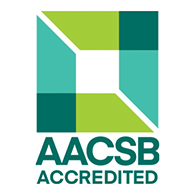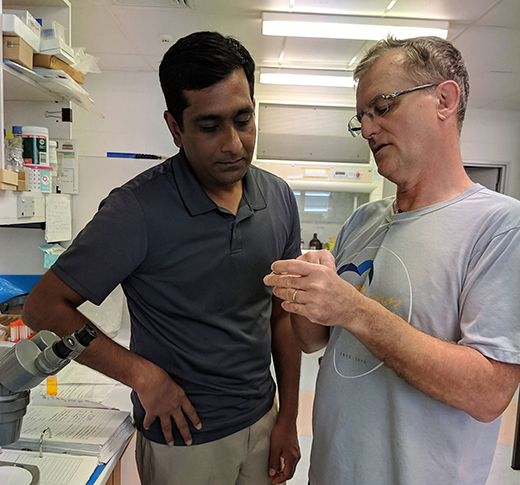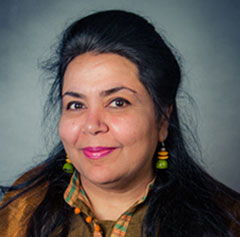02/20/19
K-State Current - February 20, 2019
K-State Current is a weekly news update for the Kansas Board of Regents to apprise the Regents on a few of the many successes and achievements made by K-State faculty, staff and students.
 U.S. President Dwight D. Eisenhower with his brother, K-State President Milton Eisenhower (right of U.S. President Eisenhower), watching a football practice. Other individuals pictured are unknown.
U.S. President Dwight D. Eisenhower with his brother, K-State President Milton Eisenhower (right of U.S. President Eisenhower), watching a football practice. Other individuals pictured are unknown.
K-State News
Kansas State University graduates are in high demand with increasing average starting salaries

Kansas State University graduates continue to set records for employment rates and salaries in a wide variety of careers across the globe.
According to the university's annual post-graduation report, 96 percent of 2017-2018 graduates are employed or pursuing further education — a 1 percent increase from 2016-2017 graduates and a 2 percent increase from 2015-2016 graduates. In addition, the overall median starting salary for recent bachelor's degree graduates rose by 2 percent to $45,000.
The report, conducted by the university's Career Center, identifies first destinations of graduates by employer, major, position titles, starting salaries, geographic placement and furthering education. It uses data from 80 percent of the 2017-2018 graduating class that was collected up to six months after graduation.
"It’s exciting to see the success and many pathways of K-State graduates," said Kerri Day Keller, director of the Career Center. "From education to technology to design and much more, our graduates are blazing new trails. Many are in jobs we couldn’t even imagine 10 years ago, such as social media manager, digital production artist, bakery technologist, patient access representative and virtual classroom trainer."
Kansas remains the top state for employment with 59 percent staying in the state after graduation and 77 percent in the five-state area: Kansas, Colorado, Missouri, Nebraska and Oklahoma. The university's reach is broad though; recent graduates were employed in 47 states and more than 30 locations overseas. The top corporate employers by number of new grad hires are Cargill, Cerner, Koch, Shamrock Trading and Textron.
"While K-State prepares students to begin employment in the workplace, many graduates pursue their chosen career fields by immediately going on to advanced professional degree programs," Keller said. "There are many pathways from college to career."
Of the 18 percent of recent graduates who are continuing their education, the most common programs for furthering education include accounting, law, medicine, nursing, physical therapy and veterinary medicine.
College of Business Administration extends its accreditation with AACSB International
AACSB International, or AACSB, has extended accreditation for Kansas State University's College of Business Administration in both business and accounting.
For more than a century, AACSB accreditation has been synonymous with the highest standards in business education and has been earned by only 5 percent of the world's schools offering business degrees at the bachelor's degree level or higher. Less than 23 percent of those schools hold supplemental AACSB accreditation for their accounting programs.
"AACSB congratulates Kansas State University on extending its accreditation," said Stephanie M. Bryant, executive vice president and chief accreditation officer of AACSB International. "The intense peer-review process confirms a school's continued focus on excellence in all areas, including teaching, research, curricula development and student learning. Kansas State University's dedication to delivering high-quality business education will create the next generation of great leaders."
Achieving accreditation is a process of rigorous internal focus, engagement with an AACSB-assigned mentor and peer-reviewed evaluation. During this multiyear path, the college focuses on developing and implementing a plan to align with AACSB's accreditation standards. These standards require excellence in areas relating to strategic management and innovation; student, faculty and staff as active participants; learning and teaching; and academic and professional engagement.
To achieve accounting accreditation, an institution must first earn AACSB business accreditation. Then, in addition to developing and implementing a mission-driven plan to satisfy the business accreditation quality standards, accounting accreditation requires the satisfaction of a supplemental set of standards specific to the discipline and profession of accounting. Once accreditation is achieved, each institution participates in a five-year continuous improvement peer review to maintain high quality and extend its accreditation.
"I am extremely proud of the work that has been done by our faculty and staff to extend our AACSB accreditation," said Kevin Gwinner, Edgerley family dean of the College of Business Administration. "The strategic planning initiative we have undergone in conjunction with the AACSB accreditation process ensures that we will continue to provide a clear path to success for our students, and reaffirms K-State's status as a world-class business education institution."
Through that accreditation and strategic planning process, the college has identified three themes to focus its efforts on over the next five years: reinventing student experiences, expanding external collaborations and strengthening the foundations for enterprise sustainability and growth.
Reinventing student experiences starts with a fundamental review and assessment of the classroom content the college delivers, along with the methods of delivery. The college will reallocate resources toward academic content and delivery methods that drive significant improvement in students' education and job preparation. This will include new interdisciplinary educational opportunities with other colleges, an emphasis on high-achieving students through a revamped honors student experience, the growth of internship experiences and a renewed emphasis on instilling a global mindset.
Expanding external collaborations will be achieved through building strong relationships with alumni and industry, providing research-based insights to impact business practice, and better communicating the college's capabilities and successes with key constituents. To this end, the college will support impactful faculty research and purposefully create opportunities for faculty, students and staff to have meaningful interactions with business executives.
Strengthening the foundations for enterprise sustainability and growth will focus on building a strong organizational culture. This includes improvements to new student recruitment, student retention, graduation rates and job placement; communicating the college's message utilizing new platforms and mechanisms; and securing sustaining financial resources.
"Congratulations to our College of Business Administration for this continued AACSB accreditation, recognizing through rigorous peer review our ongoing excellence in business education, external collaborations and organizational culture," said Charles Taber, provost and executive vice president of Kansas State University. "I would like to thank the faculty and staff in the College of Business Administration who work so hard to support student success and opportunity."
K-State Faculty Highlights
Researchers predict spread of invasive long-horned ticks into North America

A recently invaded tick species known as the long-horned tick could establish itself in wide swathes of North America — if they are transported accidentally. This prediction was published in a new study in Nature's Scientific Reports by Ram Raghavan, assistant professor at the Kansas State University College of Veterinary Medicine, and his international team of collaborators.
"The long-horned tick is also known as the east Asian tick, in Australia as the bush tick and in New Zealand as the cattle tick," said Raghavan, a spatial epidemiologist. "This species of tick is native to Japan, China, Primorsky Krai region of eastern Russia and Korea; and it is well-established as an invasive species in Australia, New Zealand and on several Pacific Islands."
In some of these countries, Australia and New Zealand in particular, Raghavan said this tick is implicated in the transmission of theileriosis to cattle — costing several millions of dollars each year — and in other places they are known to transmit severe fever thrombocytopenia virus to humans.
Raghavan pointed out widespread concerns that the tick — Haemaphysalis longicornis — will successfully establish invasive populations in the U.S. and spread broadly from where it has been currently found.
"Our primary focus in this study was to predict where this tick could establish in North America, and to do that as robustly as possible considering all the caveats in spatial distribution modeling," Raghavan said. Data for modeling the potential spatial distribution for this tick species was provided by multiple institutions, collected from the species' native distribution range.
This tick species has an ability to reproduce without males and to spread to new places and establish under rather diverse climatic conditions.
"About 1983, H. longicornis had spread from northwestern New South Wales and/or southeastern Queensland across Australia to the coastal areas near Perth in Western Australia," said Steve Barker, parasitologist and a leading expert on Australian ticks at the University of Queensland.
"Such an invasion in the U.S. would carry a significant economic burden and potential human suffering, especially since this tick is capable of transmitting a variety of pathogens such as those cause Lyme disease and others," said Barker, who is one of 10 co-authors of the article, "Potential Spatial Distribution of the Newly Introduced Long-horned Tick, Haemaphysalis longicornis in North America." Among other collaborators are researchers from the Walter Reed Army Institutes of Research, University of Kansas and institutions in Japan, Australia and New Zealand.
Raghavan said the best-fitting spatial distribution models in his research had indicated a broad potential distribution for this species. The researchers' model accurately predicted all of the areas in which this invaded tick has already been found in the U.S.
"By our model, we have identified vast areas of North America, particularly the southeastern U.S., the West Coast and broad areas of the northwestern U.S., as well as central and southern Mexico, as climatically suitable for establishment of this species," Raghavan said.
Vibhavari Jani, associate professor in the College of Architecture, Planning & Design's
interior architecture & product design department, has been selected for the 2018 International Interior Design Association, or IIDA Foundation Diversity Award.
The award recognizes and celebrates an educator who is a representative of a diverse background and is making a significant contribution to interior design education today, has made contributions to the teaching profession for advancing the practice of interior design, and is actively advancing diversity in the interior design industry.
Jani will receive the award at the Interior Design Educators Council's annual conference March 8 in Charlotte, North Carolina. She will receive $5,000 as part of this honor.
"Vibha's work stretches far beyond the classroom; her focus on equity and inclusion is reflected in everything she does, and we are proud to honor her with this award," said Cheryl Durst, executive vice president and CEO of IIDA. "Jani brings her 24 years of architecture and interior design practice experience to her curriculum and regularly incorporates project work where students, design practitioners, and the community collaborate for the greater good. In addition to writing the award-winning book 'Diversity in Design: Perspectives from the Non-Western World,' Jani has developed design courses, workshops, seminars, exhibitions, and published more than 50 research papers to highlight the importance of cultural diversity, equity, and social justice in the interior design industry."
Jani is a Liberock universal design scholar, and was awarded the Rotary Peace Fellowship in 2013, Kansas Campus Compact Engaged Faculty Fellowship, Big 12 Faculty Fellowship in 2012 and Tilford Fellowship in 2011. She has received more than $200,000 in grant funding for her research and creative projects and has won many awards for her research including a gold medal for her architecture research work, Distinguish Alumni Award, and best thesis award, among many other honors.
Jani has also mentored secondary and elementary level students from the most diverse and multicultural urban school district in Detroit, South Carolina, and currently works with Kansas City Public Schools to provide an example of a successful career path for a person of color.
She is a registered architect in India, holds NCIDQ certification for interior design in the U.S., a licensed interior designer in Louisiana and registered interior designer in Michigan. In more than 26 years of practice in India, the U.S. and Canada, she has served the architecture, interior design, facilities management and construction industries in an executive and an administrative capacity. Her work represents large — $100 million — projects for major corporations, health care and educational institutions, government, and hospitality clients.
Jani's book of paintings, "Creation," based on the Vedanta philosophy of India, was published in 2000. She also illustrated "Baal Vikas Yatra" — "Baby's Growth Book" — which was published in 1999. Her book of poetry, "Sumbandh Naam Nu Ek Phool," was published in 1999. Jani's essays, articles and poetry have been published in India, the United Kingdom and the United States. She designs research-based educational exhibitions that promote diverse perspectives in art, architecture, culture and sustainability. Her photographs, paintings and exhibitions have been shown in India, the United States, Italy, Spain and Saudi Arabia.
"This award signifies the growing need for supporting research and developing academic programs so that we all can see ourselves represented in academia, and profession, regardless of our color, religion, race, or other aspects of our lives," Jani said. "I am incredibly honored to receive this award, and accept it on behalf of my students, and my colleagues, and thank the IIDA Foundation and the award committee for this honor."
K-State Student News
NASA DEVELOP ambassador program at K-State, opportunities for students
DEVELOP, part of NASA's Applied Sciences Program, has recently launched its ambassador program at K-State under the leadership of Aida Farough, teaching assistant professor of geology.
The program addresses environmental and public policy issues through interdisciplinary research projects that apply the lens of NASA Earth observations to community concerns around the globe. Bridging the gap between NASA Earth Science and society, DEVELOP builds capacity in both participants and partner organizations to better prepare them to address the challenges that face our society and future generations. With the competitive nature and growing societal role of science and technology in today’s global workplace, DEVELOP is fostering an adept corps of tomorrow’s scientists and leaders.
DEVELOP is currently accepting applications for the summer 2019 term. If you are a DEVELOP alumni, contact Farough at afarough@k-state.edu to join the ambassador program.
All majors and levels — undergraduate and graduate — and international students as well as U.S. citizens and residents are invited to apply.